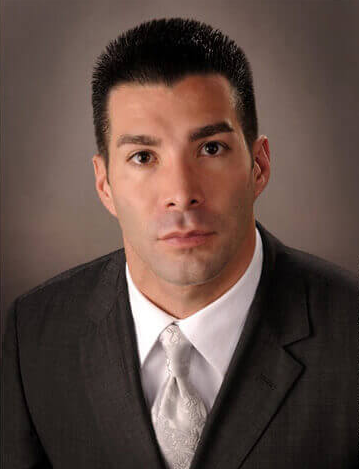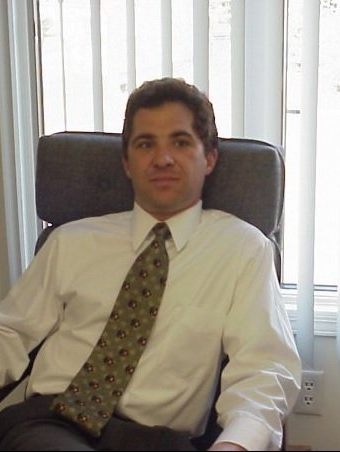Trucking Accident Attorney
Using data from the National Highway Traffic Safety Administration, the National Safety Council reports that in 2022, 5,837 large truck accidents resulted in at least one fatality. During that same year, 120,200 large trucks were involved in accidents that injured at least one person. This is particularly problematic for the occupants of other vehicles and their family members because the occupants of vehicles other than the trucks were the most likely to die or become injured in these accidents.
If you or someone you love has been involved in a trucking accident, it’s important to know that legal options are available. These may not make you or your loved one completely whole again, but they can provide some measure of compensation, closure, and even justice. Contact the Lento Law Group by calling 833-536-8652. No matter where the accident occurred, we can help, as we have offices and licensed attorneys across the United States.
Why Truck Accidents Are So Deadly
The Insurance Institute for Highway Safety notes some of the reasons why non-truck vehicles bear a disproportionate level of force when involved in an accident with a large truck. This is because large trucks:
· Require 20% to 40% more distance to stop.
· Have higher ground clearance, which can crush smaller cars.
· Typically weigh 20 to 30 times more than the typical passenger car.
The bottom line is that it usually comes down to simple physics and how the average passenger vehicle is no match for a large truck.
Common Causes of Large Truck Accidents
There are countless ways in which a truck accident can occur. However, because human error is often a major contributing factor, some causes come up more often than others. These include:
· Distracted driving
· Fatigued driving
· Careless driving
· Bad weather conditions
· Poor vehicle maintenance
· Insufficient driver training
· Speeding
· Defective equipment
· Impaired driving (from alcohol, drugs, or a medical condition)
· Improperly loaded cargo
· Tailgating
· Disobeying a traffic signal
· Cutting off another vehicle
Who’s Liable in a Truck Accident?
It depends on the parties involved in the accident and who’s responsible for causing it. In many cases, there are multiple reasons for the accident, which could include various people contributing to the accident.
For example, the truck driver may have been following the passenger vehicle too closely, as well as speeding. The brakes installed on the truck may have had a design defect. Then to make things even more complicated, the passenger vehicle that got rear-ended by the large truck didn’t have properly working brake lights.
In this hypothetical, there are at least three entities that contributed to the accident: the passenger driver, the truck driver, and the company that designed the brakes used in the large truck. Other parties could easily have played a role in causing the accident.
For instance, the employer of the truck driver may not have properly trained its driver regarding safe driving techniques. If so, they might also be subject to a lawsuit from the accident. If the road’s surface wasn’t properly maintained, then there could be a state government agency that’s potentially liable, too. Finally, if the truck’s cargo wasn’t properly loaded onto the truck and that helped lead to the accident, then the cargo loading company might also be at fault.
Seeking Compensation for Injuries Caused by a Truck Accident
If you receive financial compensation because you or a close family member was in a trucking accident, most likely, you won’t have to go to court. Because most large trucks on the road today are commercial, there’s a greater chance that the driver, the trucking company, and the owner of the cargo have insurance. These commercial policies often have multi-million dollar coverage limits that are supposed to fully compensate individuals who suffer damages because of a mistake or other wrongful conduct by a commercial insured or covered entity.
What often happens after an accident is that you and your attorney will send a demand letter to parties you believe are responsible for the accident. This may include the trucking company, the cargo company, and the truck driver. This letter outlines the nature of your injuries, the extent that those injuries affect your life, how those injuries were the result of the truck accident, and a monetary amount you believe would fairly compensate you for those injuries.
The recipient(s) of the demand letter won’t usually agree to the demand amount (at least initially) but will often be willing to negotiate a lower amount. Even though you might technically be negotiating with a party to the accident, their insurance company will be closely involved. It’s also possible that the insurance company will hire an attorney to represent their insured during the negotiations.
Sometimes, the insurance company will do the right thing and present a reasonable settlement offer to you. Unfortunately, this doesn’t happen as often as it should. There are various reasons for this, but it could be because the insurance company feels you don’t have a strong case or they want to be a tough negotiator and hope that they can make your claim go away with a low-ball offer.
This is why it’s so important to have the help of a truck accident lawyer when dealing with insurance companies. Your attorney will know all the tactics that insurance companies use and can help you determine if a counteroffer from the insurance company is reasonable, given the facts of the case, or if it’s an attempt to lowball you.
Additionally, if a settlement can’t be reached, a lawsuit might be necessary. If so, having a lawyer representing you during the negotiations means you can seamlessly transition to the lawsuit process with an attorney who already knows everything about your accident and is ready to take your case to court.
How Legal Liability Works in Truck Crashes
In the majority of truck crash cases that end up in litigation, you’ll rely on a negligence cause of action. You’ll probably argue that the truck driver, the truck company, and any other responsible parties were negligent and that this negligence led to the accident. To succeed in a negligence-based lawsuit, you have to establish four things.
First, that the defendant had a legal duty. In the case of truck accident cases, you might argue that the truck driver has a duty to safely drive the truck.
Second, you need to show that there was a breach of this duty. For example, imagine your accident was the result of the truck driver being drunk at the time of the collision. You would contend that a truck driver who is drunk while driving is breaching their duty to safely drive their truck and obey all relevant traffic laws.
One of the most common ways to prove the first two elements of a truck accident negligence case is to refer to applicable federal and state trucking laws. These can be extensive and dictate various aspects of the trucking industry, such as required breaks and truck safety requirements. If you can show that the truck driver, trucking company and any other responsible party violated one or more of these regulations, then you’ll have a strong legal argument that one or more defendants breached their legal duty.
Third, you need to show causation. This means providing evidence that the breach of the duty caused your injuries. Using the above example of a drunk truck driver, if rear-ending the truck was the cause of your accident, then your negligence case might fail. Here, the primary cause for your injuries was you tailgating the truck, not the truck driver being drunk.
Despite this, you might still be able to make some recovery. This is because there’s a reasonable chance that the truck driver’s alcohol levels probably played at least a small role in the accident. Had they been sober, they might have been able to avoid the accident despite your mistake of following too closely.
Fourth, you have to show that you suffered damages as a result of the negligent conduct. For instance, if you were injured due to the accident, you would need to provide evidence of the extent of those injuries. You might testify as to how your injuries have adversely affected your daily life and present medical bills to show the financial cost the accident has had on you.
Proving Your Case
When it comes to winning a truck accident lawsuit, it’s not about what you know or think. Rather, it’s about what you can prove. In other words, the success of your case relies on the strength of your evidence, such as:
· Eyewitness testimony
· Data from the truck’s on-board data record (“black box”)
· Entries in the truck driver’s driving and maintenance logs
· Video footage from traffic cameras or dashcams
· Accident reports from law enforcement and government agencies
As you might expect, the stronger the evidence (and the more evidence you have), the more likely you’ll succeed in court. This means a higher chance of a judge or jury finding you or the defendant settling the case before trial for an amount that’s closer to what you want.
Sometimes the strength of your evidence is clear, but this isn’t always true. What seems like random information to you could be a key piece of evidence that takes your case from a 50/50 proposition to a high probability of success. On the flip side, you might think you have a strong case, but you’re relying on a key witness who doesn’t testify well and may crumble on the witness stand under cross-examination. It takes an attorney with experience handling truck accident cases to effectively make these assessments and determine the relative strength or weakness of a particular case.
Damages You Could Potentially Recover in a Trucking Accident
Your recoverable damages depend on the type of injuries you sustain and how severe they are. If you came out of the accident physically unharmed, but your car was totaled, then you would expect compensation for property damage and not medical costs. If you had a spouse or child die in the accident, then part of your recoverable damages could include a wrongful death claim. All that being said, here is a list of damages that are potentially recoverable in a trucking accident:
· Current and future medical expenses
· Lost wages
· Property loss
· Emotional distress
· Pain and suffering
· Punitive damages
The first three are usually the easiest for the parties to the lawsuit (or insurance claim) to agree on. This isn’t surprising as you can provide vehicle repair or replacement estimates, copies of medical bills, and wage documents that present quantifiable monetary amounts. This doesn’t mean you and the defendants will always agree on these amounts, but they’re usually some of the less contested damages in a truck accident case.
Things get more difficult if you try to claim damages for intangible injuries, such as psychological and emotional pain. One reason for this potential dispute is that this is inherently subjective and difficult to prove. There’s no invoice or bill you can reference that shows how much the accident upset you. This is understandable, as how do you put a price on losing a limb or family member?
Punitive damages are another often hotly contested part of any lawsuit. The goal of punitive damages is to punish the wrongdoer and deter others from acting in a similar way. Given these goals, it’s not easy to calculate punitive damages.
It’s also worth noting that most truck accident cases won’t result in punitive damages. For you to receive punitive damages, the defendant’s conduct needs to be particularly egregious.
Punitive damages might be warranted if the trucking company knowingly hired a driver who had a history of accidents and substance abuse struggles. However, a trucking company that completes industry-standard background checks on prospective drivers and finds nothing likely won’t face punitive damages for hiring a dangerous truck driver.
Get Help From an Experienced Truck Accident Lawyer
Getting into a motor vehicle accident with a large truck can be devastating. If you were an occupant of a vehicle that got into an accident with a large truck, you could be experiencing serious injuries. Depending on the facts of your case and the circumstances surrounding the incident, you may find it challenging to obtain compensation for your damages that were the fault of others.
This is where the Lento Law Group can step in. We have law offices and licensed attorneys in various states, allowing us to help you no matter where you get injured. To learn more about your legal options and achieve a fair resolution, call us at
833-536-8652 to schedule a free consultation.






